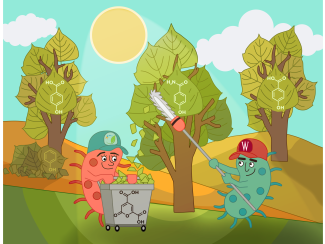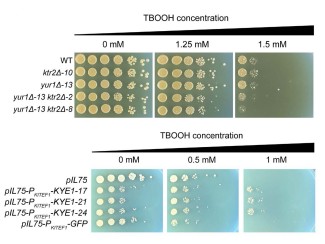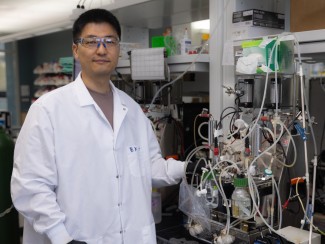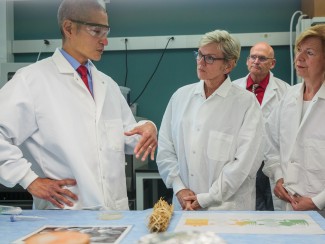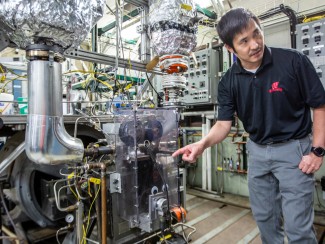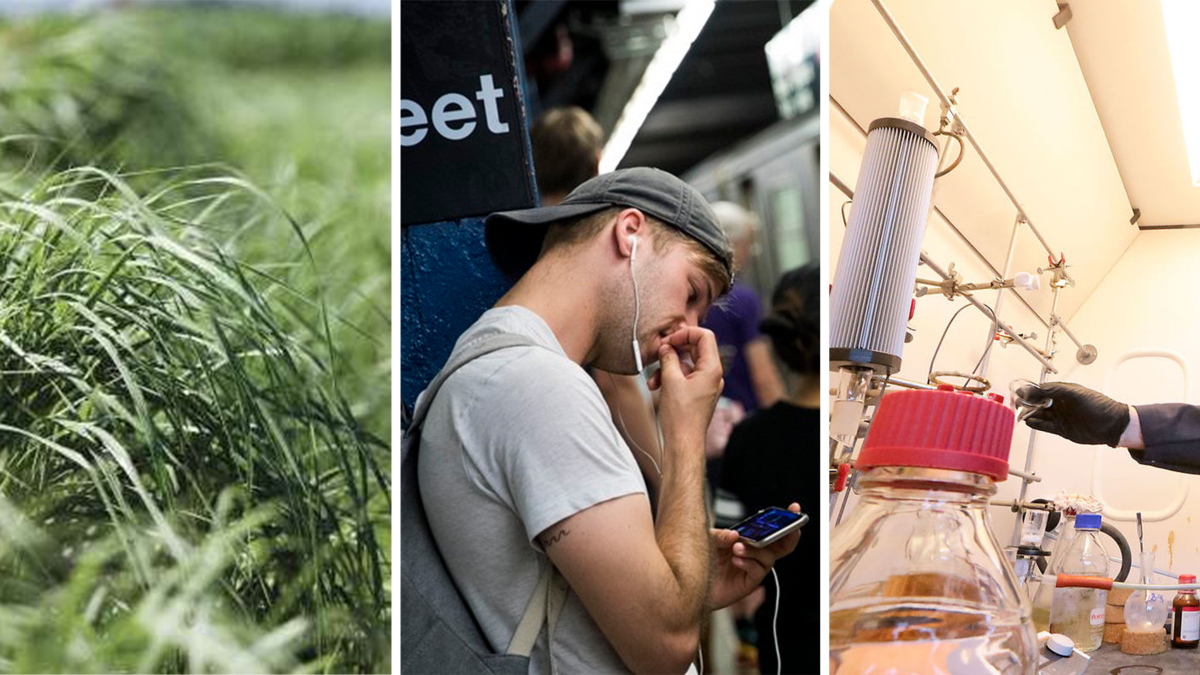
July has been filled with exciting bioenergy research milestones and growing opportunities for the Wisconsin Energy Institute. Below are some highlights from this month's media coverage.
New grant will shift focus of UW-Madison alternative fuel research center away from ethanol

Wisconsin State Journal
After winning a five-year grant from the U.S. Department of Energy, the Great Lakes Bioenergy Research Center will learn more about how to sustainably produce energy from switchgrass, poplar trees, sorghum and other dedicated bioenergy crops.
Featured Researchers
Energy jolt: UW-Madison to get funding for bioenergy center

Milwaukee Journal Sentinel
The U.S. Department of Energy announced that the University of Wisconsin-Madison will receive a new, five-year round of funding for the Great Lakes Bioenergy Research Center.
Featured Researchers
Federal funding heading (again) to Great Lakes Bioenergy Research Center

Wisconsin Public Radio
The Great Lakes Bioenergy Research Center (GLBRC) has been chosen by the U.S. Department of Energy for a third, five-year grant of around $25 million.
Featured Researchers
Just being able to see our smartphones might be draining our brain power

Mashable
Life sciences communication professor Dietram Scheufele weighs in on the results of a study that links cell phone usage to a decrease in brain power.
Featured Researchers
Two Mauston science teachers are bringing bioenergy science back to the classroom

Messenger of Juneau County
Mauston High School teachers Yvonne Butterfield and Luke Heath attended Great Lakes Bioenergy Research Center's Bioenergy Institute for Educators, a teacher workshop hosted at UW-Madison’s Wisconsin Energy Institute from June 26-30th.
Class analysis gives initial green light to green energy in Waterloo

The Courier
A “capstone class” taught at the Wisconsin Energy Institute is helping Waterloo evaluate whether it could generate all its electricity from renewable sources on city-owned land.
Cellulosic biofuels grown on marginal lands could be a triple win, researchers find

The Energy Mix
A paper by the Great Lakes Bioenergy Research Center published late last month in the journal Science says cellulosic biofuels could make a bigger contribution to future energy and climate strategies, as long as environmental concerns are properly factored in.
ExxonMobil, UW-Madison extend research agreement

Ethanol Producer Magazine
The University of Wisconsin-Madison and ExxonMobil have announced a two-year renewal of an agreement to research the fundamental chemistry of converting biomass into transportation fuels.
Featured Researchers

